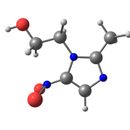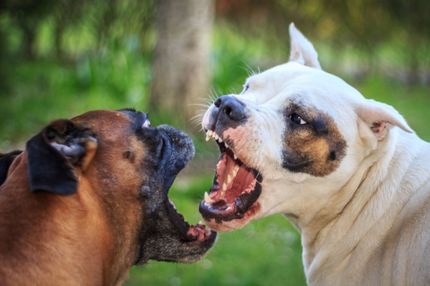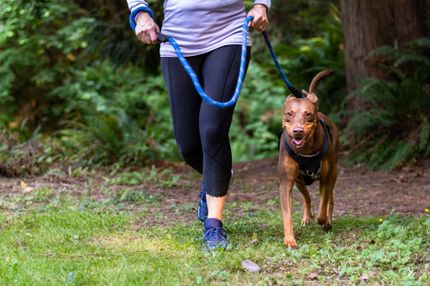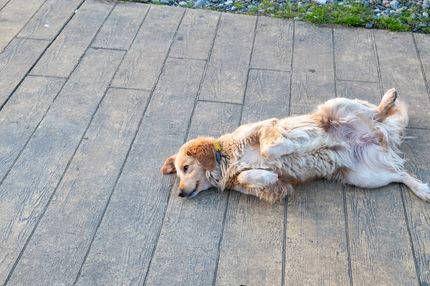It's no secret that a balanced intestinal flora is essential for a dog's health. A variety of home remedies can help to support and maintain the microbial balance in your four-legged friend's gut. However, it is important to discuss these measures with a vet beforehand.
Things to know about healthy intestinal flora in dogs
A disturbed intestinal flora in dogs does not occur without reason. Causes can be food intolerances, parasite infestations such as Giardia or the use of antibiotics, as these can affect the intestinal flora.

Natural ways to build up the intestinal flora
- Yoghurt: Despite the lactose intolerance of many dogs, yoghurt can help to regulate the intestinal flora thanks to its probiotic bacteria.
- Fruit puree made from apples and pears: These fruits are rich in vitamins and nutrients that can inhibit the growth of putrefactive bacteria in the gut.
- Linseed oil: This oil is an excellent source of omega-3 fatty acids and has an anti-inflammatory effect, which promotes intestinal health.
- Coconut oil: It stimulates the pancreas and aids digestion and the elimination of toxins.
- Healing clay: Binds toxins in the intestines and promotes deacidification.
- Aloe vera: In special preparations for dogs, aloe vera can have an anti-inflammatory and antibacterial effect.
- Sauerkraut: The lactic acid bacteria it contains can have a positive effect on the balance of the intestinal flora.
- Linseed: Rich in fiber, which stimulates the intestines and promotes digestion.
- Homeopathic remedies: Schüssler salts and certain homeopathic preparations can also have a supportive effect, but should be discussed with your vet beforehand.

When is a visit to the vet necessary?
A dog's general health is often reflected in the health of its gut. Therefore, it is important to look out for signs that could indicate an imbalance or problems in the digestive tract. Common symptoms that warrant a visit to the vet include digestive problems such as persistent diarrhea, constipation or other irregularities in bowel movements that should be considered as indications of problems in the digestive system. Drastic changes in the consistency, color or odor of the stool should also be considered as indicators of possible bowel problems.
Excessive gas or signs of discomfort and pain in the dog's abdomen should be carefully investigated. Symptoms such as unusual weight loss or a loss of interest in food that may indicate intestinal problems, as well as general lethargy or noticeable behavioral changes that could be related to the digestive system, should be noted. Skin and coat problems that are affected by gut health may also indicate deeper problems.
Thorough examinations, including fecal examinations, blood tests or imaging procedures, can be performed by a veterinarian to determine the cause of the symptoms. Specific dietary recommendations tailored to the dog's individual needs can also be given and medication or specific therapies prescribed if required.
It is recommended to consult a veterinarian if intestinal problems are suspected, rather than waiting to see if symptoms worsen. Early detection and treatment of intestinal problems can prevent long-term health problems and promote a long, healthy life for the dog.


















